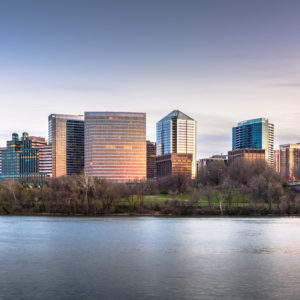Washington, DC, the capital of the United States, is one of the most visited cities in the world. DC gets over 20 million tourists annually and provides its residents with an abundance of social activities all year round. The District is bordered by the states of Virginia and Maryland, as well as the Potomac River. Making up part of the Eastern Seaboard, DC offers beaches and picturesque coastlines that locals flock to in warm weather. The city itself has just above 700,000 residents, making it the 20th most-populated city in the nation. Because of its proximity to larger suburbs in both Virginia and Maryland, it is very common for people to commute into DC rather than pay for the city’s higher cost of living. The daily commute to and from work actually increases the daytime population to above 1,000,000 people. To help tackle this daily population boom, there is an abundance of public transit, both buses and subway, to aid the DC-Maryland-Virginia (DMV) area.
Because of its historic significance, Washington, DC has a myriad of social attractions including free museums and galleries. Renowned for its annual Cherry Blossom festival, DC offers an abundance of public parks and walking trails all over the city. DC is also an international performance destination and is home to the John F. Kennedy Center for Performing Arts. The city also boasts strong scholastic prowess, housing several prestigious universities including Howard University, George Washington University, and Georgetown University. These academic powerhouses have adjunct medical centers, so optometrists looking for academic employment have many opportunities. Because of its dense population and tourist attractions, DC provides optometrists with a variety of patient demographics for any branch of optometry one may wish to pursue.
In DC, Optometrists CAN:
- Prescribe and dispense contact lenses and glasses
- Prescribe and dispense vision therapy
- Prescribe oral medications, including Schedules II, III, IV, and V drugs (maximum of 72 hour supply)
- Use epinephrine auto-injectors and oral medications to counteract anaphylaxis only
- Diagnose and treat glaucoma with topical drugs only
- Co-manage post-op care
- Perform procedures such as foreign body removal, dilation and irrigation, puncta occlusion, and eyelash epilation
- Provide and aid in care of ocular prosthetics
In DC, Optometrists CANNOT:
- Prescribe oral steroids
- Administer medications, including anesthetics, by injection, including subcutaneous infiltrative, intralesional, intramuscular, intravenous, and subconjunctival routes
- Perform minor surgical procedures to correct ocular abnormalities, such as removal of “lumps and bumps” around the eye
- Perform anterior segment laser procedures including YAG capsulotomy used to treat cloudy lens implants following cataract surgery, Selective Laser Trabeculoplasty (SLT) and Laser Peripheral Iridotomy (LPI) used to treat some forms of glaucoma
- Perform cataract extractions, retinal surgery, or refractive surgery (such as LASIK)
- Laser or non-laser injection into the posterior chamber of the eye to treat any macular or retinal disease

Washington, DC is a highly attractive city for practicing optometrists due to the high range of activities and diversity available as far as a patient base. However, the scope of practice allowed within the district does not allow ODs to practice to their fullest training. DC’s close proximity to metropolitan suburbs in Maryland and Virginia allows residents to receive their vision care from states where more robust optometric scope may benefit them. A greater optometric scope of practice within Washington, DC would attract more patients to receive care within the city, rather than travelling outside city limits in search of more treatment options. It is crucial for students, recent graduates, and existing DC optometrists get involved with the American Optometric Association to help improve scope of practice within the state.

